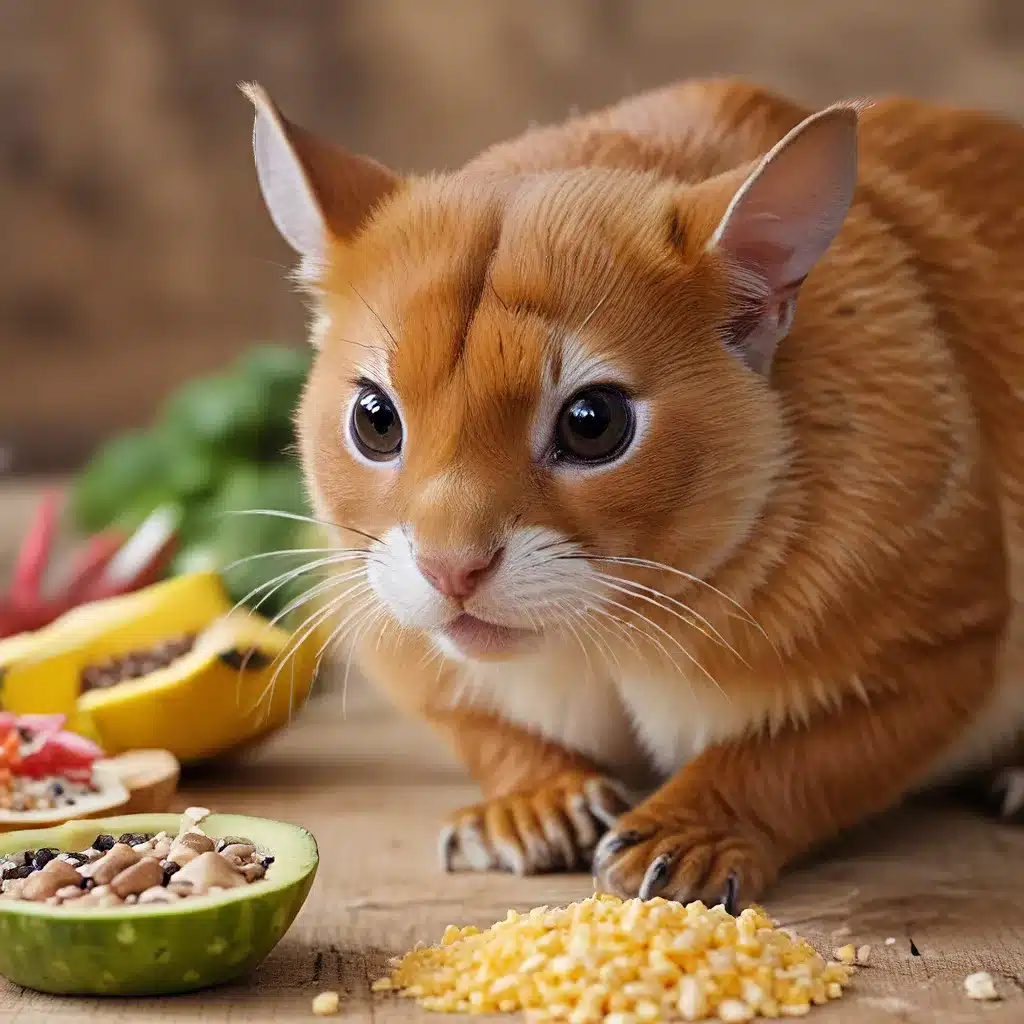
Bringing Out the Best in Your Feathered, Scaly, or Furry Friend
You know the feeling – you come home, and your exotic pet greets you with the cutest wiggle or the most melodic chirp. As their devoted caretaker, you want to do everything in your power to ensure they live their best life. And that all starts with providing a balanced diet that caters to their unique nutritional needs.
Feeding exotic pets can be a delicate dance, but with the right knowledge and a little trial and error, you can orchestrate a symphony of health and happiness for your feathered, scaly, or furry companion. So, let’s dive in and explore the essential elements of crafting the perfect meal plan for your one-of-a-kind pet.
Decoding the Dietary Diversity of Exotic Species
When it comes to exotic pets, the term “one-size-fits-all” flies right out the window. These fascinating creatures come in all shapes, sizes, and dietary preferences, which means their nutritional needs can vary drastically.
Take birds, for example. While many are primarily seed-eaters, they may also require a blend of fruits, veggies, and even proteins to truly thrive. On the other hand, reptiles like bearded dragons have a more specialized diet, often consisting of insects, leafy greens, and the occasional fruit. And let’s not forget our fuzzy friends, the sugar gliders, who need a carefully curated mix of insects, fruits, and specialized pellets to meet their unique macronutrient requirements.
Understanding these dietary distinctions is the foundation for providing your exotic pet with a truly balanced and satisfying meal.
Balancing the Macronutrient Tightrope
When it comes to feeding your exotic pet, it’s all about finding the perfect equilibrium between carbohydrates, proteins, and fats. While the specific ratios may vary depending on the species, getting this macronutrient balance right is crucial for their overall health and well-being.
For example, insect-eating reptiles require a high-protein diet to support their active lifestyles and efficient metabolism. On the flip side, herbivorous species like iguanas need a diet rich in fiber-filled leafy greens to maintain their digestive system. And don’t even get me started on the delicate dance of nutrition for our feathered friends – they need a carefully crafted mix of seeds, fruits, veggies, and proteins to keep their plumage gleaming and their energy levels soaring.
Striking the right balance is no easy feat, but with a little research and guidance from exotic pet nutritionists, you can create a meal plan that has your pet practically doing backflips with delight.
Supplementing for Optimal Nutrition
While a well-rounded diet is essential, sometimes our exotic companions need a little extra boost to meet their unique nutritional requirements. That’s where targeted supplementation comes into play.
Calcium and vitamin D3, for instance, are vital for maintaining strong bones and a healthy immune system in reptiles. And let’s not forget our feathered friends – they may need additional vitamins and minerals to support their vibrant plumage and boundless energy.
Specialized exotic pet diets are designed to provide a complete and balanced nutrition, often incorporating these essential supplements right into the formula. But before you start sprinkling any old vitamin on your pet’s food, be sure to consult with a vet or exotic pet nutritionist to ensure you’re meeting their specific needs.
Enriching the Dining Experience
Feeding your exotic pet is about more than just ensuring they get the right nutrients – it’s also about creating an engaging and enriching dining experience. After all, these incredible creatures are hardwired for exploration, problem-solving, and natural foraging behaviors.
Enter the world of puzzle feeders, foraging toys, and varied food presentations. By incorporating these elements into their mealtime routine, you’re not only satisfying their nutritional needs but also stimulating their natural instincts and promoting overall well-being.
Imagine your sugar glider having to work to extract their favorite morsels from a hidden compartment, or your parrot delicately plucking pieces of fruit from a hanging feeder. These types of enrichment activities don’t just keep them physically active – they also provide vital mental stimulation that can help prevent boredom and behavioral issues.
Avoiding the Danger Zone: Toxic Foods to Steer Clear Of
As devoted caretakers, we all want to shower our pets with love and affection. But when it comes to feeding exotic animals, sometimes our good intentions can inadvertently put them in harm’s way. That’s why it’s crucial to be aware of the foods that can be toxic or harmful to our feathered, scaly, and furry friends.
Chocolates, caffeine, and avocados, for example, can be deadly for certain species. And even some seemingly innocuous human foods like grapes, onions, and garlic can wreak havoc on an exotic pet’s delicate digestive system. Consulting with a veterinarian or exotic pet specialist is the best way to ensure you’re steering clear of any potential dietary landmines.
Fueling Up for the Long Haul
Feeding your exotic pet isn’t just about satisfying their hunger – it’s about setting them up for a lifetime of vibrant health and boundless energy. By understanding their unique dietary needs, striking the right macronutrient balance, supplementing where necessary, and creating an enriching dining experience, you’re laying the foundation for a thriving, happy companion.
And who knows, with a little creativity and a whole lot of love, you might even find yourself learning a thing or two from your feathered, scaly, or furry friend. After all, they’ve been perfecting the art of eating well for millions of years. So, let’s join them on their culinary adventure and make mealtime a true celebration of life.
Ready to take your exotic pet’s nutrition to new heights? Head over to Golden Exotic Pets to discover a world of resources, products, and expert guidance to help you provide the ultimate dining experience for your one-of-a-kind companion.

